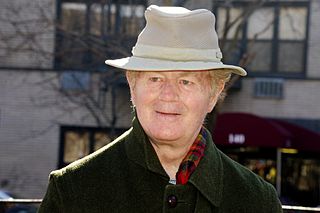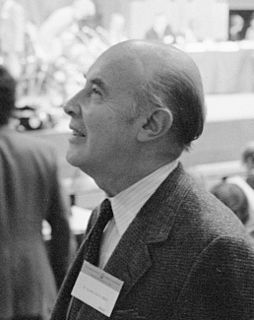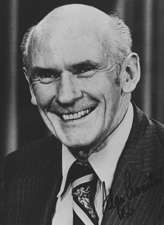A Quote by Noam Chomsky
Today, the danger of some sort of a nuclear catastrophe is greater than it was during the Cold War, and most people are blissfully unaware of this danger.
Related Quotes
[A] new generation, innocent of the divisions of the Cold War, this coming-of-age. ... If its members do not feel the urgency to escape the nuclear danger that some of its parents felt, neither has it developed the deep attachment to nuclear arms also often found among their parents, including most of the governing class. ... The call for abolition should therefore be, among other things, a call from an older generation to younger one.
The fact that lately some circles, not less powerful by their small size, have been actively promoting certain theories, as dangerous as they are illusory, of a "limited", "winnable" or "protracted" nuclear war, as well as their obsession of "nuclear superiority", make it advisable to bear always in mind that the immediate goal of all States, as was expressly declared in the Final Document of the Special Assembly of 1978, "is that of the elimination of the danger of a nuclear war"
The tension of a mysterious danger is even more unbearable than danger itself. People hate the vacuum of an unknown situation. They want security. They even prefer war to the insecure expectation of a war with its threat of enemy surprise. This vague fearful expectation acts on their fantasies. They anticipate all kinds of mysterious dangers; they begin to provoke them. It is the evocation of fear and danger in order to escape the tension of insecurity.
We don't talk about that at all as a country. I think that most people assume that there's nothing they could do if a nuclear bomb went off in their city. And that's just not true. Most people would survive most terrorist nuclear attacks because the bombs would likely be much smaller than those we were dealing with in the Cold War.
We are living in a world of fear. The life of man today is corroded and made bitter by fear. Fear of the future, fear of the hydrogen bomb, fear of ideologies. Perhaps this fear is a greater danger than the danger itself, because it is fear which drives men to act foolishly, to act thoughtlessly, to act dangerously...
All of us in this country give lip service to the ideals set forth in the Bill of Rights and emphasized by every additional amendment, and yet when war is stirring in the world, many of us are ready to curtail our civil liberties. We do not stop to think that curtailing these liberties may in the end bring us a greater danger than the danger we are trying to avert.





































